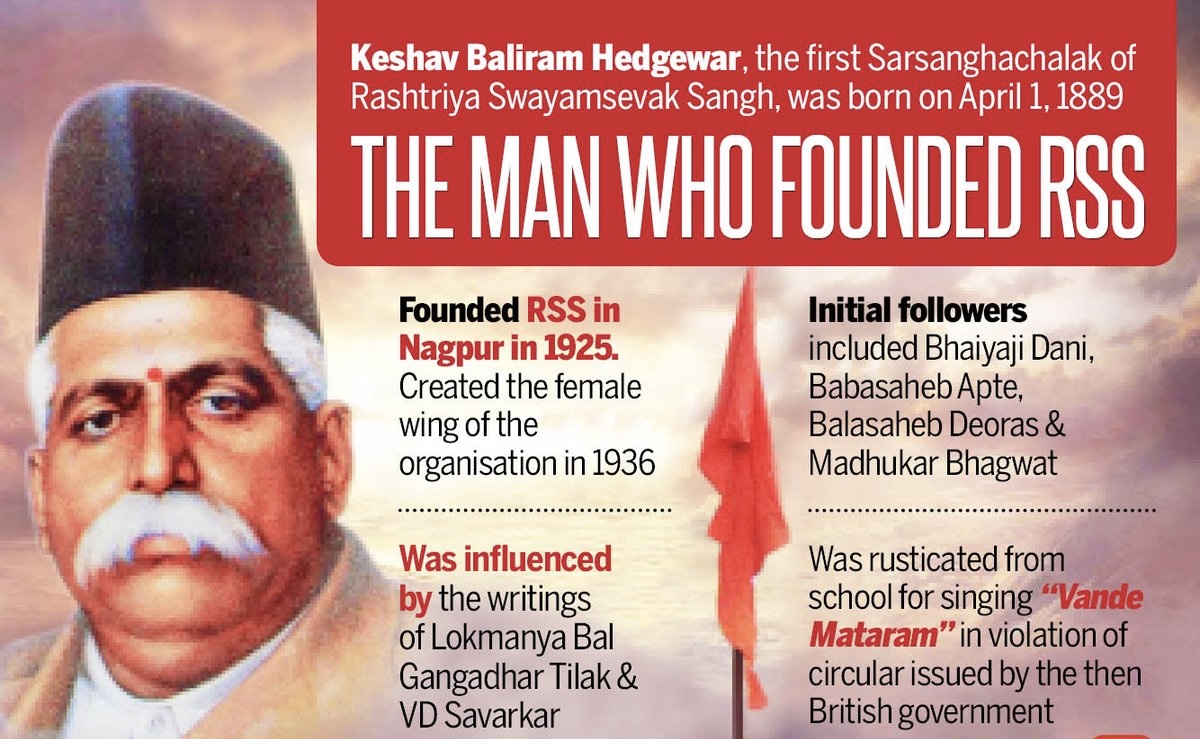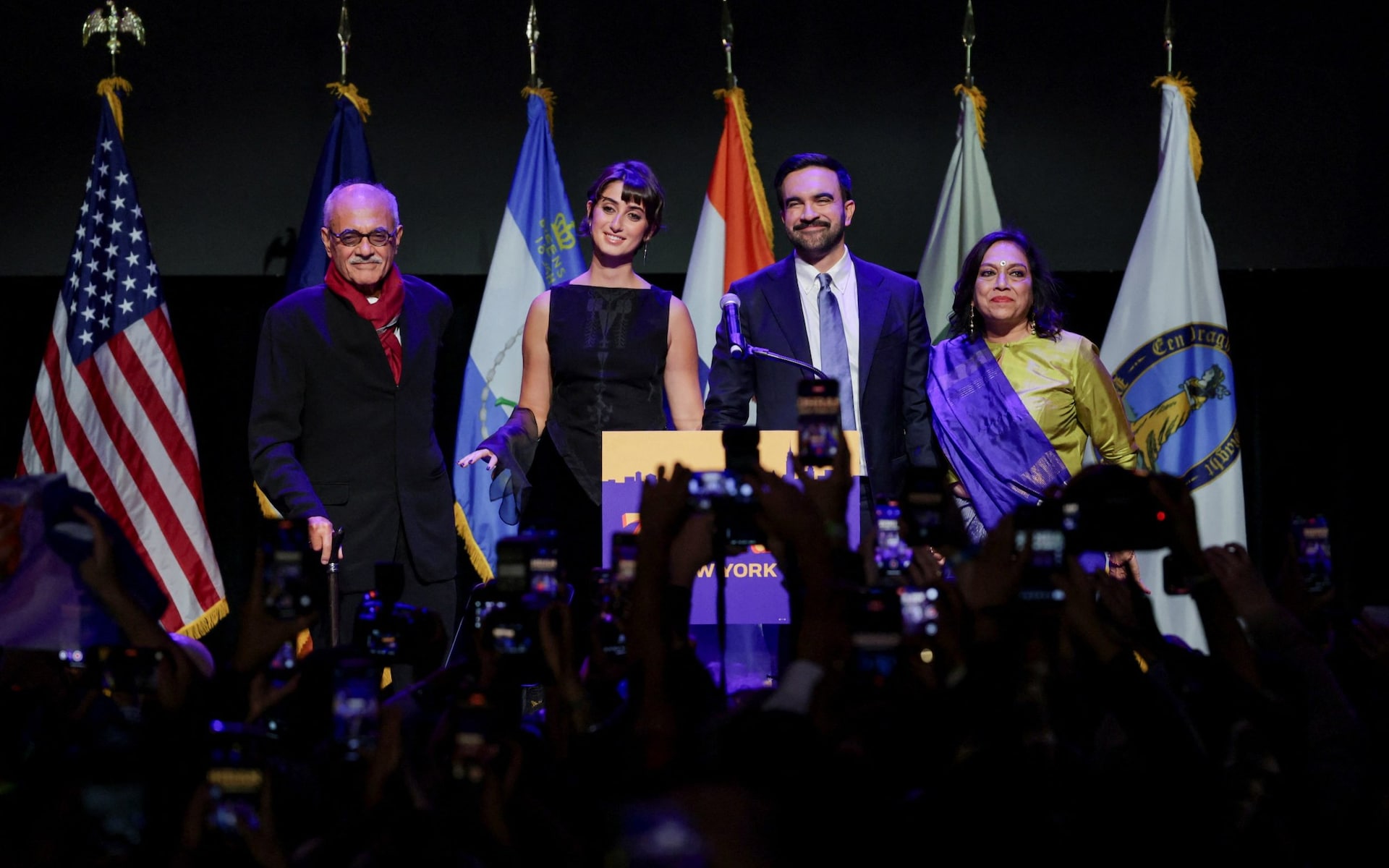
Dr. Keshav Baliram Hedgewar, the founder of the Rashtriya Swayamsevak Sangh (RSS), contributed to India’s freedom struggle through a combination of direct participation in revolutionary and political activities and his long-term vision of fostering national unity and social cohesion. His efforts, while often overshadowed by mainstream narratives, were significant in both direct and indirect ways. Below is a detailed account of his contributions:
Early Revolutionary Activities
- Anti-British Sentiment from Childhood: Born in 1889 in Nagpur, Hedgewar displayed patriotic zeal early in life. At age eight, he threw away sweets distributed at school to celebrate Queen Victoria’s diamond jubilee, reflecting his rejection of British rule. In 1907, he was expelled from Neel City High School in Nagpur for leading classmates in singing Vande Mataram, defying a British ban.
- Involvement with Anushilan Samiti: During his medical studies in Kolkata (1910–1916), Hedgewar joined the Anushilan Samiti, a revolutionary organization influenced by Bankim Chandra Chatterjee’s writings. This group aimed to overthrow British rule through revolutionary means, and Hedgewar became a core member, engaging in activities to destabilize colonial authority.
Participation in the Indian National Congress
- Non-Cooperation Movement (1921): Hedgewar actively participated in the Non-Cooperation Movement led by Mahatma Gandhi, serving as the joint secretary of the Nagpur city unit of Congress. He was imprisoned for a year in 1921 on charges of sedition for his role in organizing protests and mobilizing volunteers. He also played a significant role in managing the 1920 Nagpur Congress session, inducting 1,200 volunteers.
- Civil Disobedience Movement (1930): Hedgewar joined Gandhi’s Salt Satyagraha in 1930, participating individually rather than involving the RSS as an organization. He led a group of volunteers in the Forest Satyagraha, resulting in his arrest and nine months’ imprisonment in 1931. He deliberately kept the RSS out of direct political involvement to focus on its organizational goals but encouraged individual participation.
Founding of the RSS and Indirect Contributions
- Formation of the RSS (1925): Disillusioned with the fragmentation of Indian society along caste, class, and creed lines, Hedgewar founded the RSS on Vijayadashami in 1925 in Nagpur. His vision was to unify Hindu society through discipline, patriotism, and cultural nationalism, which he believed was essential for achieving and sustaining independence. The RSS aimed to build “social capital” by fostering unity and national consciousness through shakhas (local branches).
- Cultural and Social Awakening: Hedgewar emphasized that political independence alone was insufficient without cultural and social unity. Through RSS shakhas, he instilled discipline and patriotism among youth, creating a socially cohesive base that indirectly supported the freedom struggle by strengthening societal resilience.
- Support for Revolutionary Activities: RSS volunteers provided logistical support to revolutionary groups like the Hindustan Socialist Republican Army (HSRA). For instance, they offered safe houses and resources to figures like Chandrashekhar Azad and Aruna Asaf Ali during the 1942 Quit India Movement. Hedgewar’s own revolutionary background informed this support, though it was often discreet due to the secretive nature of such activities.
- Role in the Quit India Movement (1942): While the RSS as an organization did not formally participate, many RSS volunteers joined the Quit India Movement individually, maintaining communication networks, distributing propaganda, and mobilizing communities, especially in regions like Vidarbha (e.g., the Chimur Ashti episode). Hedgewar’s death in 1940 meant he did not directly oversee these efforts, but his foundational work enabled such participation.
Strategic Vision and Ideological Contributions
- Critique of Societal Weaknesses: Hedgewar believed India’s subjugation by the British stemmed from internal divisions and a lack of national cohesion. He sought to address this by promoting cultural nationalism, drawing inspiration from Indian texts like the Ramayana and Dasbodh, as well as Western thinkers like Mazzini and Nietzsche. His focus on eliminating caste barriers within RSS shakhas was a radical step toward social unity.
- Long-Term Nation-Building: Unlike Gandhi’s focus on immediate non-violent resistance or Bose’s militaristic approach, Hedgewar’s vision was long-term. He anticipated that British rule would end but feared post-independence fragmentation. The RSS was designed to prepare Indian society for self-rule by fostering discipline and a unified national identity.
- Disagreement with Gandhi’s Non-Violence: While respecting Gandhi, Hedgewar initially favored armed resistance, believing non-violence alone was insufficient against a militarized colonial power. However, recognizing India’s lack of organizational discipline, he shifted to building a cadre-based movement through the RSS, prioritizing societal strength over direct confrontation.
Controversies and Criticisms
- Limited Organizational Involvement: Critics, particularly from leftist and Congress-aligned historians, argue that the RSS under Hedgewar avoided direct confrontation with the British, focusing instead on cultural mobilization. Some claim this stance bordered on collaboration, citing the RSS’s decision to hoist the saffron flag instead of the tricolor in 1930. However, Hedgewar’s supporters argue that his focus on societal unity was a complementary strategy, not a compromise, and that individual RSS volunteers made significant sacrifices.
- Selective Historical Narratives: Some sources note that Hedgewar’s contributions are underreported due to ideological biases, with mainstream narratives emphasizing Congress-led movements. His revolutionary past and imprisonment are often overlooked, as is the RSS’s indirect support for the freedom struggle.
Legacy
Hedgewar’s contributions extended beyond direct participation in protests. By founding the RSS, he created a framework for organizing Hindu society, which he saw as critical to both achieving and sustaining independence. His emphasis on discipline, unity, and cultural nationalism influenced post-independence India, though it remains a polarizing aspect of his legacy. His work laid the groundwork for the RSS’s growth into a major socio-cultural organization, with shakhas expanding across India by the 1940s.
In summary, Hedgewar contributed to India’s freedom struggle through his early revolutionary activities, active participation in Congress-led movements, and the establishment of the RSS to foster social and cultural unity. While his approach differed from Congress leaders like Gandhi, his focus on long-term societal strength complemented the broader fight for independence, despite being underrepresented in some historical accounts.




